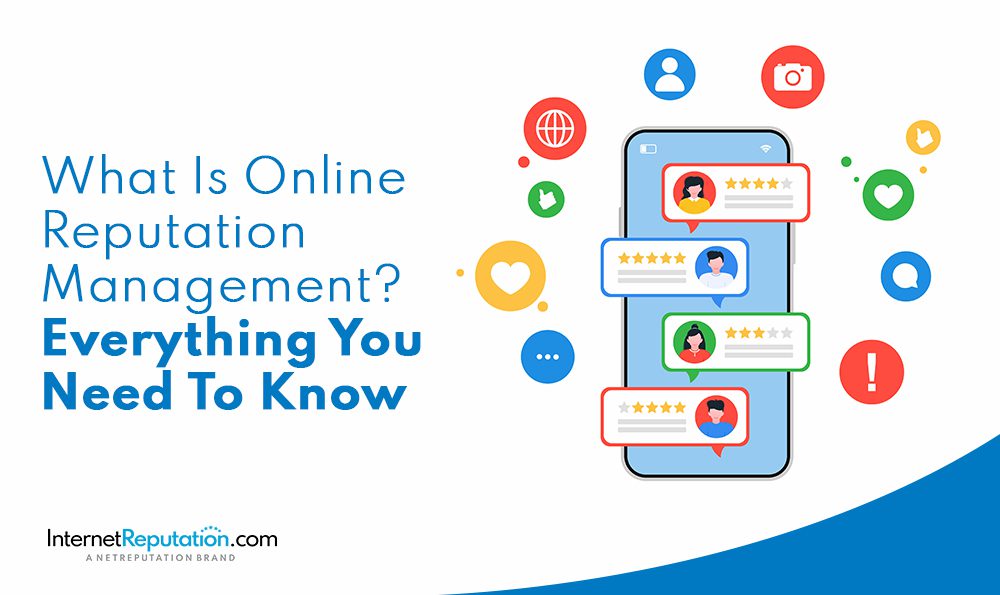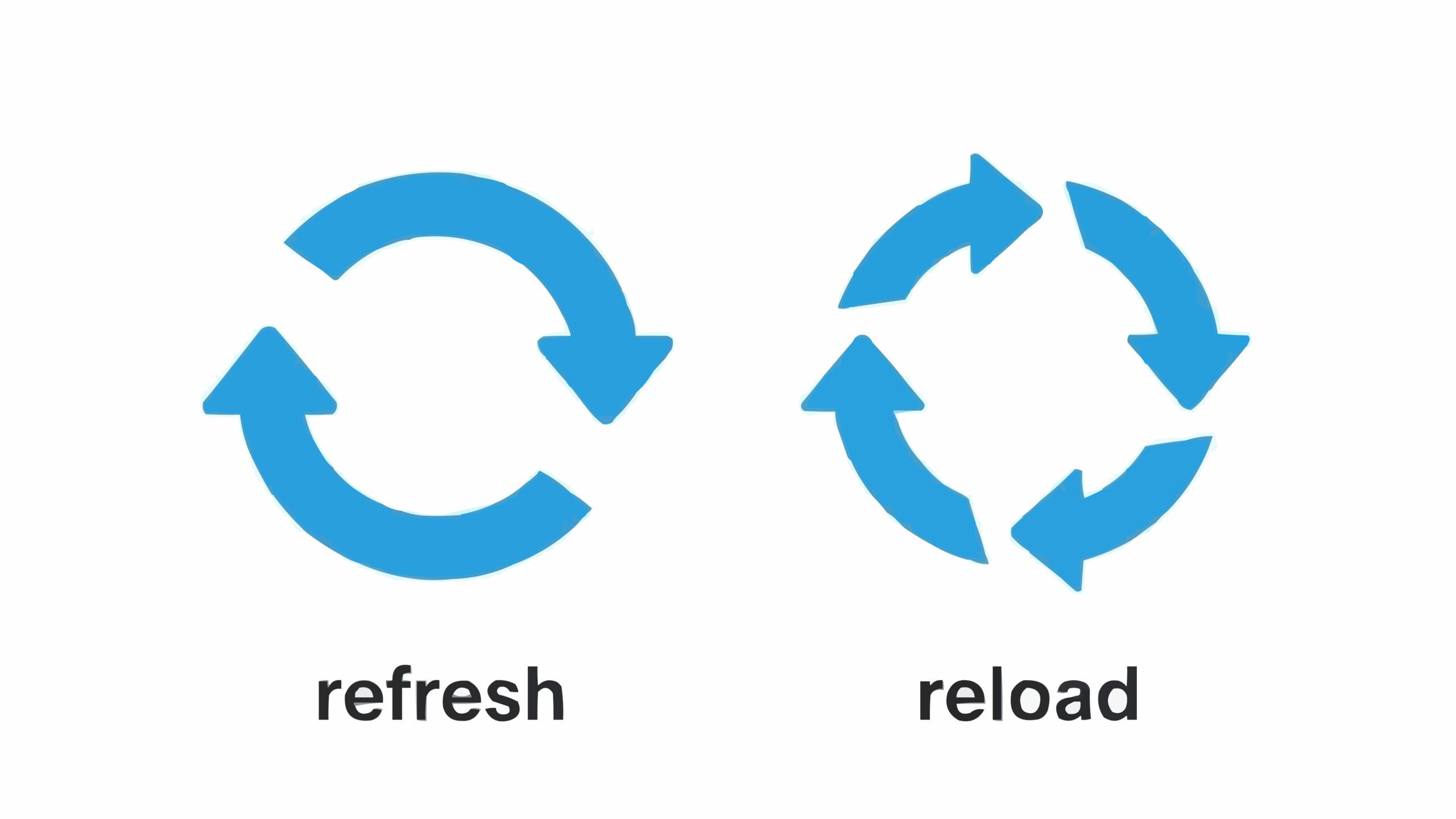What Is Online Reputation Management? Everything You Need To Know for 2026

What is online reputation management? Read on for everything you should know about protecting your brand’s reputation in 2026.
You and your business work hard to keep your customers satisfied. You connect with clients one-on-one and tirelessly develop new products, services and features to satisfy clients’ needs.
However, even with the most effective customer service, a business is bound to occasionally experience a hit to its reputation.
For example, a customer may post a bad review for the entire internet to see. Or a less-than-flattering media story can spread far beyond what you anticipated.
When this happens, online reputation management comes in to save the day.
By actively managing your reputation, you can reduce negative customer feedback and maintain your online presence as positively as possible.
Today, we’re going over the what, why, and how of online reputation management, including the methods you need to use for your business online.
Do you need to speak with an expert about online reputation monitoring, brand management, or crisis repair? Get in touch with us by calling 941-259-4554 today to discuss your online reputation management strategy.
What Is Online Reputation Management?

We all know how important online reputation is for individuals and businesses.
Your reputation is influenced by a number of factors, including the comments and reviews you receive online, social media posts, discussions in online communities, and more.
Online reputation management (ORM) works to monitor, manage, improve and — if needed — repair your brand’s reputation online. ORM utilizes a lot of different strategies to achieve results, including:
- Generating positive reviews
- Replying to negative customer comments
- Influencing search engine results
- Improving your search rankings
- Active monitoring for brand mentions
InternetReputation.com provides the information and services you need to protect your digital presence. Get started with a free online reputation analysis by calling 941-259-4554 today.
How Is Reputation Management Different From PR?

Public relations (PR) and online reputation management have identical objectives: portraying the company in the best light. The primary difference between the two is how they achieve that objective.
PR companies work externally through advertising and coordinating promotional efforts in the media. It’s mostly a proactive effort to strengthen brands instead of minimizing attacks on firms (though PR companies do sometimes handle damage control).
Online reputation management, however, is most often reactive. It includes searching for and responding to both positive and damaging content online. Additionally, online brand reputation management involves creating content to influence your standing with your target audience.
While internal teams can handle online reputation management for brands, it may be in your best interest to work with an ORM expert. Our clients come to us when they need to build or repair their brand image and take control of their digital presence, search rankings and more. Call us at 941-259-4554 to learn more.
Why Do You Need To Manage Your Online Reputation?

Even successful brands end up with negative content online. Often, you’ll deal with small attacks, like a low star rating or a negative comment once in a while.
None of these blows is worth a full-scale PR campaign. However, they add up quickly if you leave them ignored.
You need online reputation management services to deal with all of these small fires before they cause critical damage. ORM can be essential for maintaining transparency, which is an important element to increase brand loyalty with your target audience as well.
While there are certainly still times when orchestrated PR campaigns are necessary, most of the time, your potential customers are looking for organic interactions with your brand. They need to hear directly from your company via personalized conversations, such as direct messages or responses on social media posts.
How To Manage Your Brand’s Online Reputation
For successful online reputation management, you need a process. The process will vary from company to company, depending on your size, industry, and resources.
However, consider these steps for establishing an efficient online reputation management strategy.
Perform an Audit of Your Current Online Reputation

Before putting any online reputation management process in place, you need to conduct an in-depth online reputation audit.
An online reputation management audit mainly involves uncovering how individuals see you online and what issues you might be dealing with. To do this, brand monitoring is necessary.
Brand Monitoring
Here’s a method to manually conduct a fast audit of your brand reputation:
- Open up an incognito window in your browser. Search for your company name.
- Analyze the websites that appear on the first two search engine results pages (SERPs).
- Pay close attention to the content in your Google Business Profile, including rankings, feedback, reviews, user-generated pictures, etc.
- Separate the websites you find into those you control and those you have limited power over. For example, your social media accounts are owned and controlled by you. Listings on business-search sites are not owned by you, but you have some control over the information that’s displayed there, too. News pieces, though, are not owned by you at all, and it will take extra work to have them updated or deleted.
- Read through your online reviews, and try to understand the overall sentiment of your brand.
Your goal is to find all mentions of your brand online and prioritize the links that need to be dealt with first.
When performing your brand audit, try to answer questions like the following:
- What are the top websites in my search results that I have some or complete control over?
- What kinds of websites do I see appear for my brand identity? Is there a pattern?
- Is my brand name widespread online, or are mentions coming from a handful of sources only?
- Do most visitors find my business from search engines or external websites?
- Is the overall sentiment for my business positive or negative?
We can help you create a positive online reputation, even if you’re starting from zero or rebounding from reputational damage. Call us at 941-259-4554 for more information about building your brand image online.
Create an Online Reputation Management Strategy

Now that you know your digital footprint, it’s time to develop an online reputation management strategy. (Remember, you can also hire an online reputation management firm to do this for you.)
Getting started with online reputation management can be overwhelming. That’s why prioritization is paramount. Your audit will help you determine what to focus on first. From there, follow these tips:
- Decide Your ORM Objectives: What seems to be the biggest problem? Are you dealing with a lot of phony negative comments online? Is there one unflattering article that’s risen to the top of search results? Do your customers share a similar complaint that you can use to improve your business? Whatever the biggest issue is — or your top 3 pressing issues — focus on them.
- Define Your Boundaries: Figure out how far you’re willing to go to tackle each issue. What’s your budget? How much time and energy do you have to handle the problem? Are you going to be able to deal with it all yourself, or should you outsource some of the work to build a strong online reputation?
- Prioritize Smaller Tasks: Now that you know what you’re going to focus on and your limitations, you can start chipping away at bite-sized tasks. What needs to be done first? Is there something simple that will make a big impact?
- Monitor Brand Mentions: Proactively monitoring online conversations offers a real-time view of your online presence and allows you to respond quickly. Set up a campaign to monitor the web for mentions of your brand, products, services, employees, etc. This way, you’ll always know what others are saying about you. You can also jump straight in to try to resolve any negative mentions or references.
At InternetReputation.com, we provide ORM information to individuals and businesses who want to create, grow or repair their digital presence. Call us today at 941-259-4554 to learn more.
3 Best Practices When Developing a Strong Online Reputation Strategy
- Decide on the brand voice you’re going to use. You may already know this if you’ve been running your business for a while, but if you’re a newer business, make sure you know the tone you’re going for. This will make it easier to communicate with others when representing your brand.
- Create a document with examples of the type of content that’s urgent versus not urgent. Additionally, include response templates and samples so you and your team know exactly how to handle different scenarios.
- Delegate team members to handle different aspects of your online reputation strategy. For example, certain employees may be skilled at anayzing search engine results and keeping track of the information they find. Other employees may be better at talking to potential customers and handling negative reviews.
Have a Crisis Management Strategy in Place

You can never anticipate a crisis, but this doesn’t mean that you shouldn’t prepare for one. Problems can escalate online at an unprecedented speed, so a sound crisis management strategy should always be in place.
Here are a few basics that you need in place to be prepared for a PR crisis:
- Use brand monitoring tools that will immediately alert you to negative content online or unexpected conversation peaks about your brand.
- Keep an eye on business trends, as changes in legislation or the arrival of new cutting-edge technology can put your business under a lot of pressure.
- Know where your audience is and how to talk with them most efficiently. If a large part of your audience is more active on Instagram, choose this channel as your primary communication space; this way, you’ll reach a wider audience in much less time.
- React quickly to each negative comment or review. Make sure that your responses are tailored to the situation at hand. Don’t rely on using canned responses, as your brand will come off as inauthentic.
- Set up a chain of command beforehand. Everyone should know their roles in advance. This will limit how much confusion there is when you’re dealing with the crisis.
Our advice, services and team of experts can help improve your brand’s reputation online. Call us today at 941-259-4554 to speak with an expert.
Dominate Search Engine Results for Your Brand
No successful online reputation management strategy works without search engine optimization (SEO). Your goal is to show up on the SERPs for your branded keywords. By optimizing your website content and social media accounts, you can work on getting your owned content in the top 10 results for branded searches.
According to more than 45% of internet users, one of the main reasons for going online is to research products and brands. Most users don’t ever go past the first SERP, though. Less than 1% were found to click on a result on the 2nd page.
Here are more numbers to consider: The top 3 Google search results get more than 54% of all clicks, and the No. 1 organic search result has an average CTR of 27.6%.
Define Your Branded Keywords

A branded keyword is a search phrase that includes your brand name, your URL, variations of your company name, or other similar branded words.
Identify your branded keywords that have the best impact — these are the ones you want to rank for. To do this, check the search volumes for your branded keywords, then decide which ones should be prioritized.
Then, to create a content strategy, perform a Google search for each keyword. Look through the first SERP to define which areas need work. Is there negative content that you need to update or have removed? Are there gaps in the search results that you can fill in with fresh content? Here are a few more tips:
- If you’re lacking in online reviews, contact your loyal clients and customers, asking them to leave honest reviews online.
- When you find negative content that’s ranking for your branded keyword, come up with a plan for removing it. If you own the content or have some control over it, this will be easier. For example, maybe you can remove an outdated social media post or reply to an unflattering Reddit thread. For content you don’t own, reach out to the website owner or author, politely explain the situation, and provide a compelling reason for wanting the content updated or taken down.
- Create content that will outrank anything negative about your brand. With content suppression strategies, you can get neutral and positive information to rank higher than negative content, moving it so far down in search results that few people ever come across it.
We offer a range of services to improve your brand image, including content removal, online review management, and reputation repair following a crisis. Get in touch with us at 941-259-4554 to learn more.
Encourage Positive Reviews Online
Both negative and positive online reviews will affect your online business and sales. Consider these stats:
- Google is the most-used website for reviews, followed by Facebook, Yelp and Tripadvisor.
- 34% of consumers use Instagram and 23% of consumers use TikTok as local business review platforms.
- 36% of consumers use two review sites when researching local businesses, and 41% use at least three sites.
- 91% of consumers say their overall perception of big brands is impacted by reviews of local branches.
- 88% of consumers would use a business that replies to all reviews, both positive and negative, while only 47% would use a business that doesn’t respond to its reviews.
The truth is clear: Today’s customers rely heavily on online reviews when purchasing. And your reviews can also impact your visibility online.
Brands that have a track record of having a bad reputation won’t rank as highly as beloved brands. That means that (1) potential customers may not find your brand at all, and (2) even if your target audience does come across your brand online, the results won’t be favorable.
How To Get Your Customers To Leave a Review

The best approach to dealing with negative reviews is to outweigh them with positive ones. It’s great to have a strategy to encourage customers to leave reviews. Here are some tips:
- Encourage your customers to leave feedback online. Send automated emails after someone makes a purchase, put a QR code up in your place of business, and regularly send feedback forms to check in with your target audience.
- Make it as easy as possible. Whether it’s a small pop-up on the “thank you” page, a link to a review site in your email footer, or an embedded form on your website, make it super easy for customers to leave a review. If they have to take too many steps to provide feedback, they won’t bother.
- Take advantage of your social media platforms. You can use your social media channels to make leaving reviews fun. Ask customers to share a picture of them using your product, and request that they include a unique hashtag so it’s easy for you to find and track their posts. If they follow your request, you can enter them into a contest for a freebie or offer them some other type of incentive.
- Turn it into a game. To motivate repeat customers to regularly leave reviews, you can offer a certain number of points for every review left. Once they’ve accrued enough points, they can get a special discount code or a free item.
Use your creativity and experiment with different ways to encourage more online reviews. Also, remember to thank each customer who leaves a positive review. After all, they’ve put in their time and effort to help your business, and you should show them that you appreciate it.
How To Manage Negative Online Reviews

Bad reviews directly impact your business’s bottom line, as they discourage current and potential customers from using your services or products.
Before addressing your negative reviews at random, evaluate the most problematic reviews. Reviews that rank highly on the SERP are an excellent place to begin.
Go through the following platforms to gather your reviews:
- Google Business Profile
- Social media platforms (Facebook, LinkedIn, X, Instagram, etc.)
- Trustpilot, Feefo, Yelp, etc.
Ignoring negative reviews is a terrible plan. Bad reviews that go unchecked can spin out of control and cause a bigger problem for you down the line.
Answering reviews of all kinds showcases that you, as a brand, care about each customer and will go to great lengths to resolve their issues.
Stick to a Fast Response Time
Negative comments are very time-sensitive. The sooner you deal with them, the less impact they have. It’s smart to improve the speed at which you reply so customers don’t get annoyed while waiting.
Most consumers expect a response to their review within 2 to 3 days and no longer than a week. When using social platforms to connect with brands, 30% of consumers expect a same-day response, 23% of consumers want a response within 1 to 2 hours, and 16% of consumers expect to get a response within minutes.
Be Courteous and Professional
Your reply should always begin with a simple “thank you” for the time they took to leave you a review, even if it’s a negative one. Being well-mannered will always make your brand look more appealing. Even in the event of a nasty, rude review, prioritize your brand image and the customer experience — your future customers are watching, so act accordingly.
Apologize for the Situation
Apologize to the reviewer for their experience. If your brand was at fault, take responsibility for what happened. Even if the fault wasn’t yours, though, you can still offer an apology for the person having a bad experience, whatever it was.
If your brand wasn’t at fault, you can say something like, “We understand your frustration” or “How can we make this better?” instead of a direct apology. Showing empathy can go a long way with customers, even the ones who are bitter.
Public vs. Private Communication
We strongly encourage you to address many of your negative comments in public by replying on the review site so everyone can see it. This can help to negate the impact of the bad review and show others that you’re responsive and approachable.
However, some reviews require more in-depth conversations, which will involve the exchange of sensitive information. In your public response, mention that you’ll be moving the conversation offline to provide a more customized solution to the customer.
Consider Offering a Refund or Discount
For some companies, this tactic is a last resort. However, there will be cases where it’s the best option.
When it comes to messages about refunds, though, it’s best to address them in private. Otherwise, your audience may be confused about what qualifies for a discount or a refund. If you make these decisions on a case-by-case basis, you don’t want it to come across as standard company policy.
Make Improvements to Your Service or Product
If you notice that some complaints are recurring, consider changing something about your business. Multiple customers making the same complaint indicates that something is wrong with your brand, products, services, customer service, etc. Additionally, be sure to keep everyone posted on your measures to resolve the problem.
Your Online Reputation Is a Reflection of Your Business

Online reputation management is essential to any business’s digital marketing and growth strategy.
People are speaking about your business, and they’ll continue to do so. Your job is to navigate through all the online conversations, provide fixes when possible, and encourage a positive sentiment online.
We hope this guide will be an ideal starting point for your online reputation management efforts. If you need additional help managing your online reputation, click here to learn more about how InternetReputation.com can help, or call us at 941-259-4554 today to speak with our team.
Last updated 12/2025


